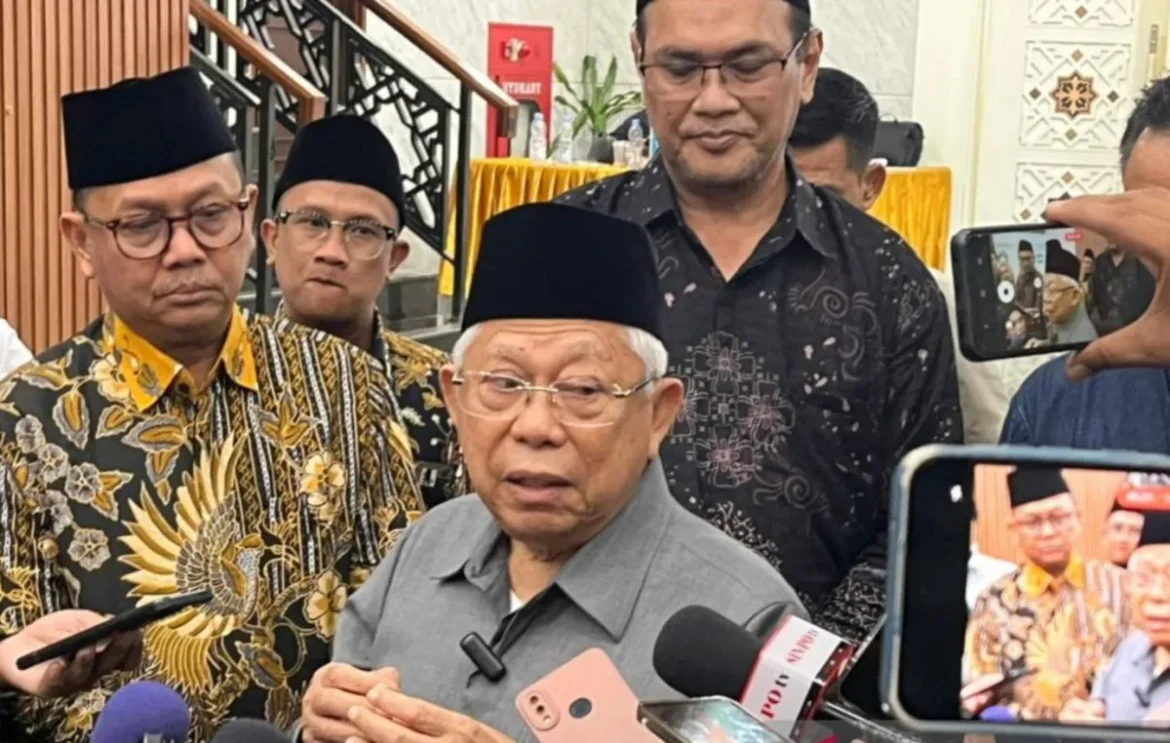Jakarta (WNAM MONITORING): Indonesia’s 13th Vice President Ma’ruf Amin confirmed President Prabowo Subianto’s plan to establish an agency dedicated to integrating the management of Islamic community assets as part of efforts to strengthen the national Islamic economy ecosystem.
“Mr. President himself has said that he intends to set up the agency here on Thamrin Street,” Amin told the media after attending a discussion held by the Indonesian Waqf and Zakat Journalists Association (Forjukafi) in Jakarta on Thursday.
The former vice president voiced support and optimism for the plan, noting that the agency is expected to help the government enhance cross-sector coordination on Islamic assets in a more centralized manner.
He added that once operational, the agency’s headquarters would serve as a hub for Islamic religious and economic activities, bringing together the National Alms Agency (Baznas), the Hajj Fund Management Agency (BPKH), the Indonesian Waqf Agency (BWI), and the Indonesian Ulema Council (MUI).
Amin expressed confidence that the planned body would improve professionalism and transparency in the management of Islamic community assets, ultimately fostering a conducive environment for the Islamic economy and finance to thrive.
“In my view, this plan is a great initiative that will garner support from the Islamic community,” he remarked.
The former chair of the National Islamic Economy and Finance Committee (KNEKS) also commended the media for its concern and coverage of the development of waqf, or Islamic endowment.
Under President Prabowo’s leadership, Indonesia aims to become a global hub for Islamic economy and finance by strengthening halal industries and optimizing Islamic assets such as zakat and waqf—part of his eight core missions known as Asta Cita.
According to the 2024-2025 State of the Global Islamic Economy Report, Indonesia maintained its position as the world’s third-largest Islamic economy for three consecutive years, scoring 99.9 on the Global Islamic Economy Indicator and attracting US$1.60 billion from 40 halal investment deals.
Last June, Vice President Gibran Rakabuming Raka highlighted that the government’s efforts to harness this momentum include appointing the Indonesian Sharia Bank (BSI) as a co-manager of Indonesia’s first national bullion bank, inaugurated by President Prabowo in February.
He also underscored ongoing efforts to accelerate halal certification—which had covered 9.8 million products by October—and expand financing access for micro, small, and medium enterprises.
Additionally, the government plans to transform the KNEKS into the Islamic Economy Agency (BES), expected to drive innovation in policymaking and strengthen coordination among stakeholders, including Bank Indonesia and the Finance Ministry.


